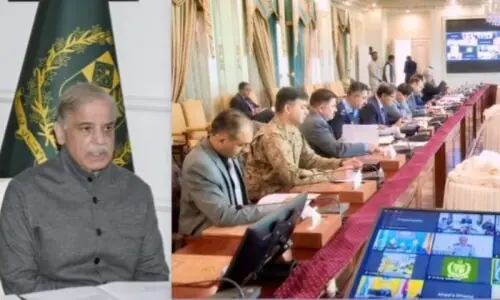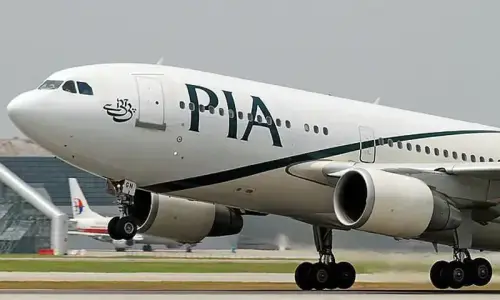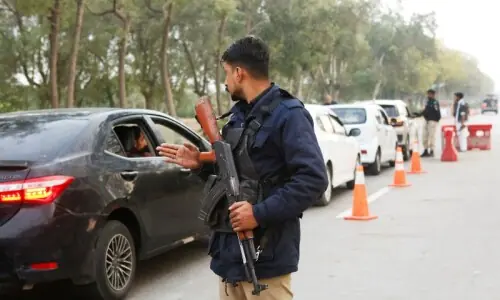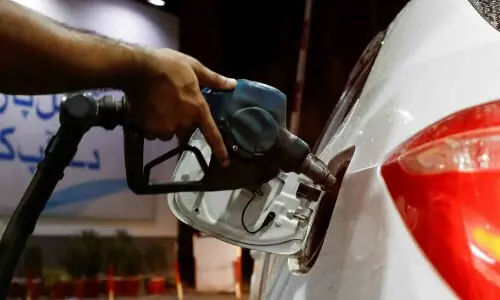PESHAWAR: Chief of the Haqqani militant network and father of Sirajuddin Haqqani, Jaluluddin Haqqani, died almost a year ago of natural causes and was buried in Afghan province of Khost, according to reliable sources among the Afghan Taliban.
While news of Jalaluddin Haqqani's death had been making rounds for almost a month now, multiple credible sources in Taliban confirmed today that he had died of illness almost a year ago.
Read: Son of Jalaluddin Haqqani captured in Afghanistan
The militant group has not officially given out a statement over Haqqani's demise yet.
Sources, however, say Sirajudin Haqqani, Jalaluddin's son, has been running the militant network for over a year now, ever since his father's illness.
News of Jalaluddin’s death comes a mere two days after the announced death of Afghan Taliban’s supreme leader, Mullah Omar.
The news of Mullah Omar’s death was first leaked through unnamed sources in Kabul on Wednesday and the Afghan intelligence and government soon after followed in with a confirmation.
The acknowledgment by the Taliban of their chief's death on Thursday was the first time the militant group has confirmed the death of their supremo even though reports about his demise surfaced in the past as well.
 |
| Jalaluddin Haqqani. – DawnNews screengrab |
Sirajuddin Haqqani appointed as operational commander
In an attempt to lower rising tensions within the Afghan Taliban after the appointment of a new chief, the Taliban Shura has appointed Sirajuddin Haqqani as the operational commander of the Islamic Emirate of Afghanistan (as referred to by Afghan Taliban).
Rifts began to emerge after Mullah Akhtar Mansoor was appointed the new supreme leader of the Afghan Taliban following the announced death of Mullah Omar, after which the Taliban Shura decided to make some changes in the organisation's hierarchy as part of its strategy to minimise differences among the leadership.
According to Taliban sources, the commander of Haqqani Network, Sirajuddin, in his new capacity, will decide on operational issues of the Islamic Emirate of Afghanistan. Earlier, Sirajuddin had been appointed as the second-in-command of Mullah Mansoor.
Moreover, Maulvi Mohammad Yaqoob, the son of former Taliban chief Mullah Omar, has now been appointed as the naib ameer (deputy chief) of the Afghan Taliban.
Hayatullah, another important member of the Shura, has been appointed as the leader of the political wing. “His job would be to guide the Shura on political matters,” the sources added.
Taliban sources further revealed that these changes on key posts were made to cool down rising tensions which erupted after the news of Mullah Omar’s death surfaced on Wednesday.
The sources, however, said that the differences still persist.
Read more: Cables detail Saudi diplomat’s meeting with Haqqani’s son
The Haqqani network was founded by Jalaluddin Haqqani — an Afghan guerrilla leader bankrolled by the United States — to fight Soviet troops in Afghanistan in the 1980s.
In the 1980s, Jalaluddin was close to the CIA and Pakistani intelligence. He allied himself to the Taliban after they took power in Kabul in 1996, serving as a cabinet minister under the militia's supreme leader, Mullah Mohammad Omar.
When American troops arrived after the 9/11 attacks, Haqqani sought refuge in Pakistan's tribal district of North Waziristan and became one of the first anti-US commanders based in the border areas.
Jalaluddin had set up a base in North Waziristan following the fall of the Taliban regime in 2001, under which he was the minister for border affairs.
He used his North Waziristan base to direct the Haqqani network’s operations. The group is accused of being behind some of the deadliest attacks in Afghanistan.
He reportedly had training bases in eastern Afghanistan and was close to Al-Qaeda. His fighters are known to be active across east and southeast Afghanistan and in the capital Kabul.
The network is militarily the most capable of the Afghan Taliban factions and operates independently but remains loyal to Mullah Omar.
Unidentified gunmen attacked and killed Nasiruddin Haqqani, the group's chief fundraiser and another son of its founder, on the edge of Islamabad in 2013.
Due to his ailment, the militant ‘commander’ had handed over operational command of the Haqqani network to his son, Sirajuddin.
Further reading: Pakistan's top militant commanders
Jalaluddin was also on the UN Sanctions list since January 31, 2001. The provisions of the UNSC resolutions 1267 (1999), and 1333 (2000) applied to him, which, among other things, bar the international travel of listed individuals and prevent any assistance to them.






























